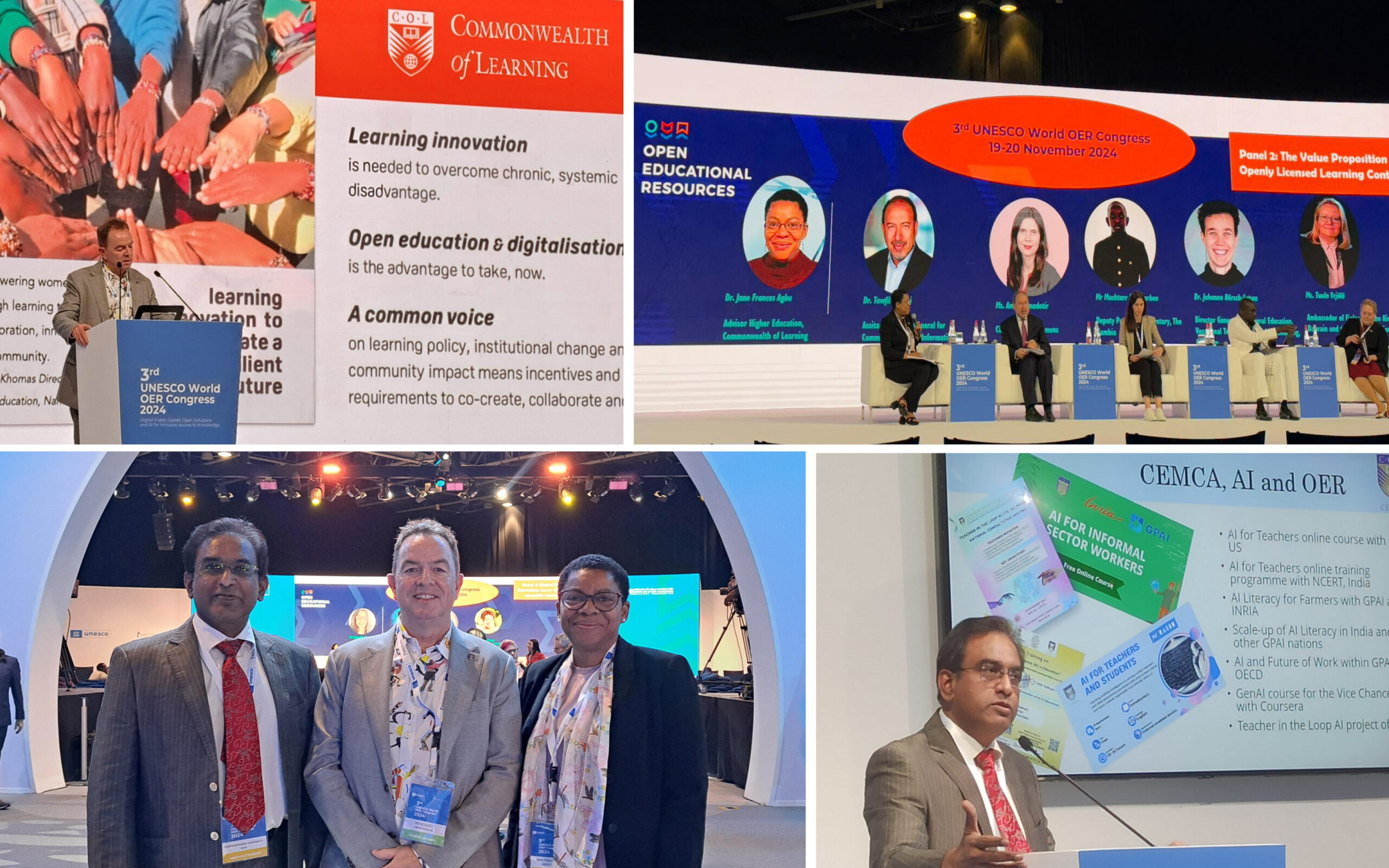
Commonwealth of Learning (COL) welcomed the opportunity to be present at the 3rd World OER Congress held in UAE from 19-20 November 2024 under the theme “Digital Public Goods: Open Solutions and AI for Inclusive Access to Knowledge.” The aim of this year’s Congress is to optimise openly licensed content to address the challenges and opportunities posed by emerging technologies.
COL President and CEO, Professor Peter Scott reminded attendees of COL’s place in the OER landscape, “COL is a catalyst for change focusing on open learning, for which OER is a critical instrument to deliver change. The real impact is not just OER as a product, but in the process. OER creation requires educators to collaborate, to think about others using their work and to create with the intent to share and extend benefit beyond on single use.”
In a panel discussion focussed on strategies to meet emerging challenges, Professor Scott explained, “If in our future work, we must create resources that are described in the language of skills – so critical to learners and employers, but also with respect to the ‘currency of credit’ – so critical to institutions and award pathways. AI is now ready to help us in this important transition from ‘content to impact’.”
Professor Scott was joined by Dr Shadrach, Director of COL’s regional centre in Asia, CEMCA, who presented at a breakout session focusing on “AI and OER initiatives” and by Professor Jane Agbu, COL Adviser: Higher Education who chaired a panel discussion and also presented at a breakout session on “OER as a public good for employability and emerging skills”.
The close of the Congress resulted in a draft ‘Dubai Call for Action on OER’, inclusive of guidelines aimed at providing actions to harness the opportunities posed by emerging technologies and for expanding knowledge sharing and creation through the implementation of the ‘2019 UNESCO Recommendation on OER’.
This call for action aligns with COL’s strategic goals to promote the rapid design, development and use of quality gender-responsive OER, to strengthen institutional systems to use OER for scaling teacher development and to support the integration of ICT and OER in teaching and learning through evidence-informed policy development and implementation.
COL has partnered with UNESCO over the last twelve years in organising global OER events in addition to a number of regional consultations. In 2012, COL and UNESCO co-organised the first World OER Congress which resulted in the adoption of the Paris OER Declaration encouraging governments to openly license educational materials developed with public funds.
The 2nd World OER Congress in Slovenia in 2017 developed strategies for mainstreaming OER for achieving inclusive and equitable quality education and lifelong learning for all by 2030. Congress participants agreed on an OER Action Plan to improve knowledge sharing, capacity building and universal access to quality learning and teaching resources.
COL and UNESCO later released joint “Guidelines on the Development of Open Educational Resources Policies,” i.e. specific tools to analyse current contexts and policy environments, understand issues related to copyright and licensing and align policy in support of Sustainable Development Goal 4.


